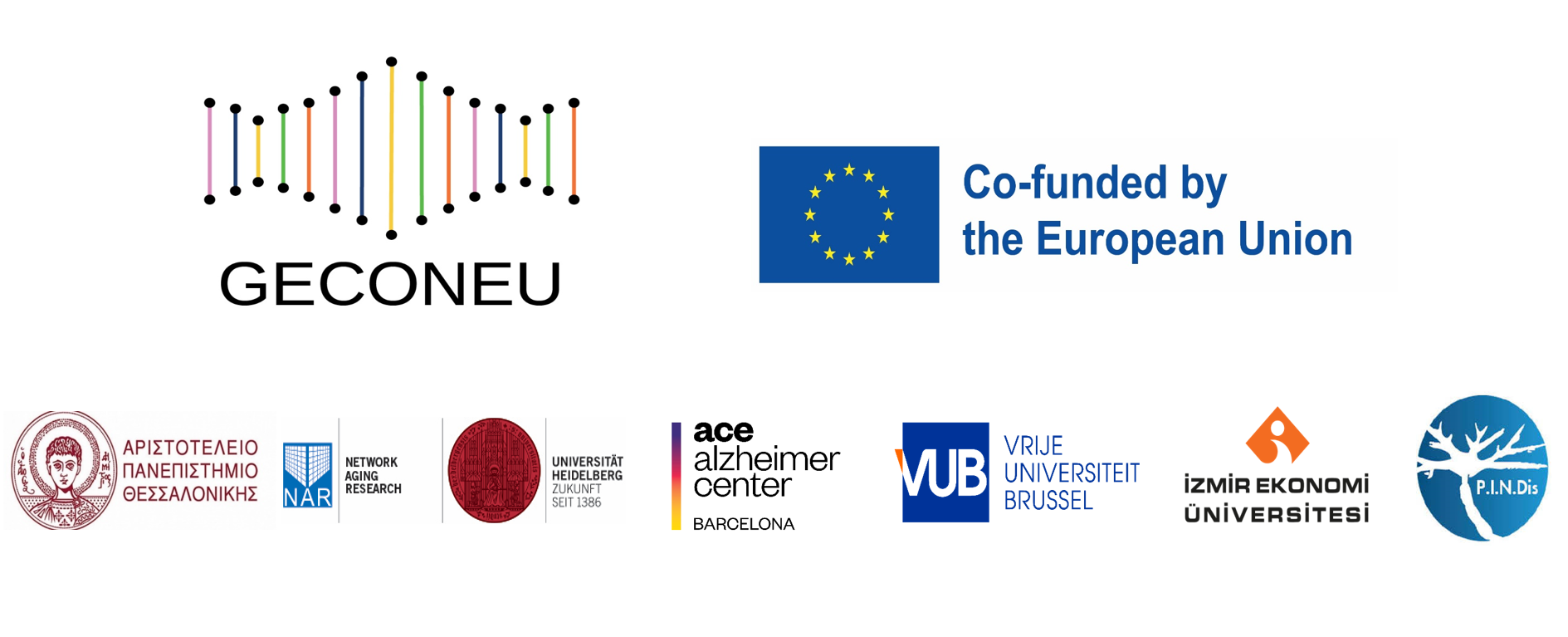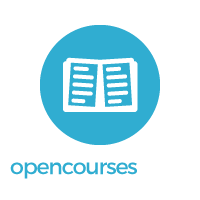Genetic Counseling in Neurodegenerative Disorders
Magdalini Tsolaki, Marina Makri, Ioanna Angelidou, Mercè Boada, Ozden Gokdemir, Akylina Despoti, Sebastiaan Engelborghs, Andrea Miguel, Hannah Stocker, Joke Temmerman, Görsev Yener, Birgit Teichmann
- This course is an introduction Course in Genetic Counseling (GC) in Neurodegenerative disorders.
- It includes basic theory on inherited methods, neurodegenerative inherited diseases and ethical aspects of genetics and GC. It goes deeper into the main counseling approaches and how they can cultivate counseling and communication skills. The last part covers the implementation of GC sessions, including guidelines and protocols.
- This course can introduce participants to GC and cultivate new competencies and knowledge in this field.
- The GECONEU project has developed this course, http://www.genecounsel.eu/
- It has been developed in six languages, English, German, Greek, Dutch, Spanish, and Turkish.
- This course is an introduction Course in Genetic Counseling (GC) in Neurodegenerative disorders.
- It includes basic theory on inherited methods, neurodegenerative inherited diseases and ethical aspects of genetics and GC. It goes deeper into the main counseling approaches and how they can cultivate counseling and communication skills. The last part covers the implementation of GC sessions, including guidelines and protocols.
- This course can introduce participants to GC and cultivate new competencies and knowledge in this field.
- The GECONEU project has developed this course, http://www.genecounsel.eu/
- It has been developed in six languages, English, German, Greek, Dutch, Spanish, and Turkish.
- This course is an introduction Course in Genetic Counseling (GC) in Neurodegenerative disorders.
- It includes basic theory on inherited methods, neurodegenerative inherited diseases and ethical aspects of genetics and GC. It goes deeper into the main counseling approaches and how they can cultivate counseling and communication skills. The last part covers the implementation of GC sessions, including guidelines and protocols.
- This course can introduce participants to GC and cultivate new competencies and knowledge in this field.
- The GECONEU project has developed this course, http://www.genecounsel.eu/
- It has been developed in six languages, English, German, Greek, Dutch, Spanish, and Turkish.
Lesson 1.1. Introduction to the online Course of GECONEU
Lesson 1.1. aims to introduce learners to the objectives of the GECONEU Course and help the readers to understand and learn about:
- The aims and the goals of this Course
- Who can participate in this Course
- A summary of the main Lessons and Units
At the end of this lesson, the users will acquire what Units and lessons they will get with a knowledge on brief contents of each lesson.
Lesson 2.1. Basic inherited methods and theories
It aims to give basic information about inheritance, human genomic variation, genetic disorders & genomic research. At the end of this module, the users will acquire a set of basic notions on heredity, genomic variation, and emerging research in genetics.
Lesson 2.2. Neurodegenerative inherited diseases
It aims to give basic information about the most common neurodegenerative inherited diseases. At the end of this module, the users will acquire a set of basic notions on the role of genetics in neurodegenerative disorders that can cause dementia, such as Alzheimer’s disease (AD), Vascular dementia (VaD), Parkinson’s disease (PD), Lewy bodies dementia (LBD), Frontotemporal lobar degeneration (FTLD), Huntington’s disease (HD), and Creutzfeldt-Jakob disease (CJD). Furthermore, the different types of genetic testing and the current technologies will be briefly discussed.
Lesson 2.3. Ethical Aspects of Genetic Counseling
It aims to give basic information about the core principles of ethics. At the end of this module, the users will acquire a set of basic notions of ethics and the four principles of medical ethics, autonomy, beneficence, non-maleficence, and justice.
Lesson 2.4. Human Rights in Genetics
It aims to give basic information about human rights. At the end of this module, the users will acquire a set of basic notions on the legal frameworks regarding genetic testing, the differences between the national laws of the participating countries in GECONEU project and the basic information about informed consent and data protection.
Lesson 3.1. The main counseling approaches
It aims to inform about the main counseling approaches, styles, and specialties. This lesson will present the most prevalent clinical counseling approaches/theories and consider specific challenges, disorders (e.g., trauma, depression, and anxiety), and client populations (e.g., couples and students). By highlighting these important areas, we hope that participants will get informed and prepared to find the right type of counseling approach to contribute to a GC session. At the end of this module, the users will acquire a set of basic notions of the counseling approaches and the main ideas of a family systemic approach, Carl Roger’s theory/humanitarian approach, narrative therapy, cognitive-behavioural therapy, mindfulness-based counseling, reality therapy and psychodynamic approach.
Lesson 3.2. Cultivating counseling and communication skills
aims to give basic information about the main communication and counseling skills that are some of the critical skills that a counselor has to cultivate to influence change in a client effectively. It will include interactive materials and methods. At the end of this module, the users will acquire a set of basic notions on
- Why is communication important in genetic counseling and what are the main skills that a counselor needs to bring in a session with a client
- The main communication skills that every counselor should cultivate
- Exercises for practicing and developing effective communication skills and relationships with clients
Lesson 4.1. Genetic Counseling Sessions An overview
It aims to explain precisely what the Genetic Counseling (GC) sessions for people with a family history of Neurodegenerative Disorders (ND) are and the main objectives of these sessions. At the end of this module, the users will acquire a set of basic notions on GC and the main goals, who can be a Genetic Counselor, the multidisciplinary team and the difficulties in this job. This Unit will focus on the benefits of the potential negative implications of GC and the motivations and barriers to participating in GC sessions.
Lesson 4.2. Genetic Counseling sessions in practice
The objective of lesson 4.2 is to present the transnational guidelines aimed at professionals performing genetic counselling (GC) and created by the GECONEU project. At the end of this module, the users will acquire a set of basic notions on the proposed protocols to conduct GC, the common tools to assess a patient’s psychological state regarding the process of genetic testing, how to produce the patient’s pedigree and family tree, the basics of risk calculation and the steps of result disclosure and follow-up sessions.
Lesson 4.3. The use of Telegenetics
It aims to give basic information about Telegenetics services as a new service system and describe the need to enhance and promote Telegenetics as part of remote Genetic Counseling services. At the end of this module, the users will acquire a set of basic notions on the difficulties encountered in reaching GC services and how telegenetic services can overcome these problems. Moreover, detailed information about the issues to be considered in the remote telegenetic service will be addressed. The arrangement of the counseling environment will be described.
Lesson 5.1. Learn more about GECONEU project
This lesson aims to give basic information about the GECONEU project. More specifically, the project background and outcomes, as well as the main reached results, will be presented. At the end of this module, the users will acquire a set of basic notions on the aim and the results of GECONEU project.

